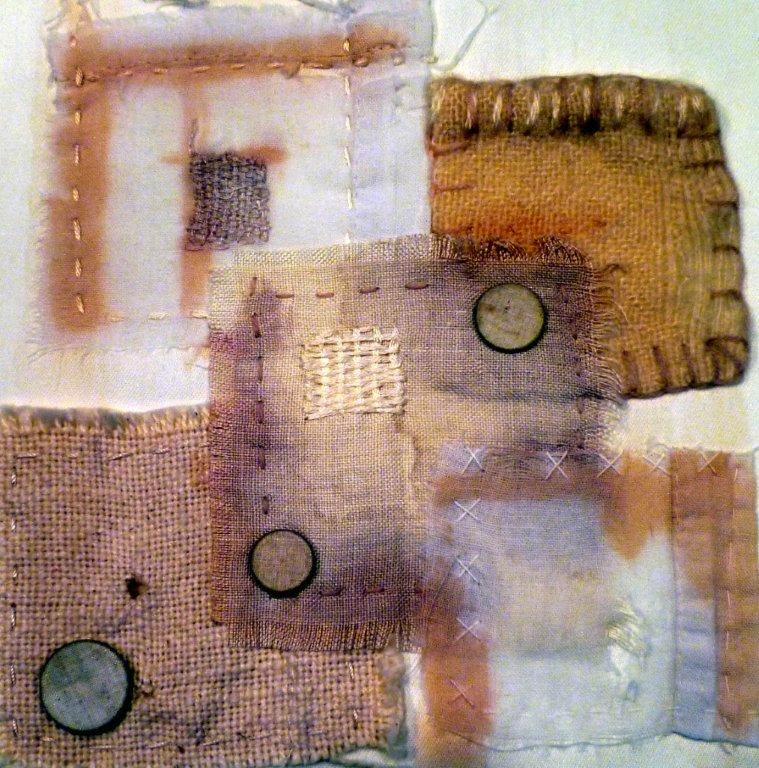Creative Thoughts Janet Smithies
This months Creative Thought is by Textilia Member Janet Smithies
 |
| 'Mending' Janet Smithies |
Last
year my daughter and I had surgery and it has been quite difficult to rekindle
my creative work routine and get my creative brain resurged. However following
my success at our Harlow Carr and selling two large pieces I am pushing myself
to create. I am urging our Embroiderers’ Guild Branch to participate in a
‘Waterways’ project which has to have sketchbook inspiration. I have had great
fun doing ‘wrong handed sketching’ (to engaged the creative side of my brain),
and Jackson Pollocking water and ink onto large sheets of wallpaper to create
running, merging, ‘waterways’ pages for the sketchbook. About 6 members have
taken up the challenge to make the pages anyway.
Member
Catherine had been inspired by the Jason Perry lectures at Christmas (which I
did listen to but alas can’t remember) and asked us his question, “Which bus
are you on?” Perry suggested it was often the case that artists followed design
paths but when they hit a block, they got off the bus and onto another. He
urged artists to stay on the same bus. I find the creative bus is not always
easy to get on, there is the housework, the partner, the grandchildren and the
gardening as eager distractions. As a group we have also had a discussion about
whether long serving working artists should teach their techniques and ideas,
which have taken years to develop and perfect, ‘quickly’ to the general public.
I would say it is up to the individual and that although you can spark an idea
in someone it never quite looks the same as the original.
Textilia
have moved their monthly base to Cliffe Castle Museum. We now meet in a lovely
bright open room with sinks and electric sockets and windows which look out
into a lovely Park.
Last
month we browsed the exhibits and I was inspired by two contrasting pieces. One
a beautiful ‘Bal Blanc’ evening dress 1884, worn for a Ball in Keighley where
all the ladies wore white, and by contrast a painting called ‘The song of the
shirt’ 1902 by Albert Daniel Rutherston portraying a care worn, thin, plain
woman sewing or mending a shirt by a bare table with a hunk of bread for
sustenance. The richness of the manipulation of the satin and lace fabrics
conjured up a sound of dance music and excitement of the Ball whereas the only
sound to be heard in the painting of the poor woman was the scratch of needle
against fabric in silence and solitude and left me much moved. I have chosen
these two pieces to interpret for our group combined journal




Comments
Post a Comment